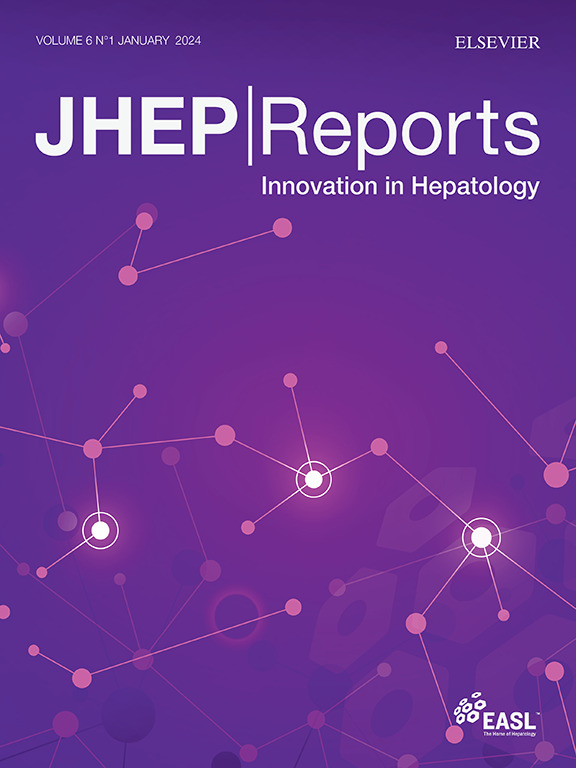Liver resection and transplantation in the era of checkpoint inhibitors
IF 9.5
1区 医学
Q1 GASTROENTEROLOGY & HEPATOLOGY
引用次数: 0
Abstract
Immune checkpoint inhibitors (ICIs) have revolutionised the treatment landscape for advanced hepatocellular carcinoma (HCC). The combination of atezolizumab and bevacizumab has demonstrated efficacy, establishing a new standard of care for advanced HCC. Neoadjuvant studies have shown promising results with high response rates, increasing research into ICIs’ role. In the peri-operative setting, in addition to adjuvant and neo-adjuvant therapies, strategies for "downstaging" and "bridging" patients to liver transplantation (LT) are being investigated, broadening the eligible candidate pool. Furthermore, therapeutic advances have reshaped conversion strategies for hepatic resection, with emerging evidence indicating a role for adjuvant immunotherapy in patients at high risk of postoperative recurrence. In LT, concerns have arisen over the potential conflict between immunosuppression needs and the immune-enhancing effects of ICIs, with reports of severe rejection. However, liver-specific factors may lessen rejection risks, prompting exploration into the safety of pre-transplant ICI administration. Moreover, ongoing trials must prioritise patient selection and vigilant management protocols. Despite the remarkable progress in immunotherapy, the intricate molecular interactions within the tumour microenvironment and their implications on oncogenic pathways remain incompletely understood. This highlights the need for specialised expertise to effectively integrate immunotherapy into the surgical management of HCC. Key challenges include ensuring safety, optimising oncological outcomes, managing the risk of graft rejection in transplant recipients, and refining patient selection criteria. In this review, we aim to provide a comprehensive overview of the evolving role of immunotherapy in the surgical management of HCC, discussing the rationale for its application in both pre- and post-surgical contexts, leveraging current clinical experience, identifying potential limitations, and envisioning future applications. By integrating existing knowledge and highlighting areas for further investigation, this review seeks to inform clinical practice and guide future research endeavours.
检查点抑制剂时代的肝切除和移植手术
免疫检查点抑制剂(ICIs)彻底改变了晚期肝细胞癌(HCC)的治疗格局。atezolizumab和贝伐珠单抗的联合用药已显示出疗效,为晚期HCC建立了新的治疗标准。新辅助治疗研究显示了良好的疗效和较高的应答率,从而增加了对 ICIs 作用的研究。在围手术期,除了辅助治疗和新辅助治疗外,还在研究将患者 "降期 "和 "桥接 "到肝移植(LT)的策略,从而扩大了符合条件的候选者范围。此外,治疗方法的进步也重塑了肝切除术的转换策略,新证据表明辅助免疫疗法在术后复发高风险患者中的作用。在 LT 中,免疫抑制需求与 ICIs 的免疫增强作用之间的潜在冲突引起了人们的关注,有报道称 ICIs 会产生严重的排斥反应。然而,肝脏特异性因素可能会降低排斥风险,这促使人们探索移植前使用 ICI 的安全性。此外,正在进行的试验必须优先考虑患者的选择和警惕性管理方案。尽管免疫疗法取得了令人瞩目的进展,但人们对肿瘤微环境中错综复杂的分子相互作用及其对致癌途径的影响仍不甚了解。这凸显了将免疫疗法有效整合到 HCC 外科治疗中的专业技术需求。主要挑战包括确保安全性、优化肿瘤治疗效果、控制移植受者的移植物排斥风险以及完善患者选择标准。在这篇综述中,我们旨在全面概述免疫疗法在 HCC 手术治疗中不断演变的作用,讨论其在手术前和手术后应用的理由,利用当前的临床经验,找出潜在的局限性,并展望未来的应用。通过整合现有知识并强调有待进一步研究的领域,本综述旨在为临床实践提供信息并指导未来的研究工作。
本文章由计算机程序翻译,如有差异,请以英文原文为准。
求助全文
约1分钟内获得全文
求助全文
来源期刊

JHEP Reports
GASTROENTEROLOGY & HEPATOLOGY-
CiteScore
12.40
自引率
2.40%
发文量
161
审稿时长
36 days
期刊介绍:
JHEP Reports is an open access journal that is affiliated with the European Association for the Study of the Liver (EASL). It serves as a companion journal to the highly respected Journal of Hepatology.
The primary objective of JHEP Reports is to publish original papers and reviews that contribute to the advancement of knowledge in the field of liver diseases. The journal covers a wide range of topics, including basic, translational, and clinical research. It also focuses on global issues in hepatology, with particular emphasis on areas such as clinical trials, novel diagnostics, precision medicine and therapeutics, cancer research, cellular and molecular studies, artificial intelligence, microbiome research, epidemiology, and cutting-edge technologies.
In summary, JHEP Reports is dedicated to promoting scientific discoveries and innovations in liver diseases through the publication of high-quality research papers and reviews covering various aspects of hepatology.
 求助内容:
求助内容: 应助结果提醒方式:
应助结果提醒方式:


